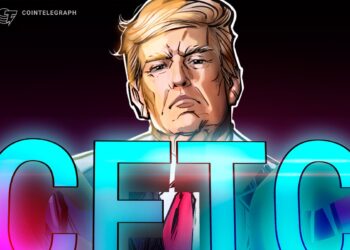The ink on the GENIUS Act is barely dry, however its ripple results are already seen throughout the crypto trade. In simply seven days, the sector added practically $4 billion, pushing the stablecoin market cap above $264 billion and fueling company curiosity in associated ventures.
The surge isn’t any shock. The landmark laws gives banks, asset managers, and different institutional buyers with a federal framework for fiat-backed stablecoins with out the looming risk of enforcement actions by the Securities and Alternate Fee (SEC).
With regulatory readability comes new capital, new gamers, and intensified competitors. Indicators of this shift had already emerged even earlier than the GENIUS Act was enacted.
In a Could interview with Yahoo Finance, Coinbase CEO Brian Armstrong was requested if he was involved about banks coming into the stablecoin market. “No,” he replied. “I believe everyone ought to have the ability to create stablecoins.”
Conventional finance appears to agree, and with new entrants pouring in, consideration is shifting to stablecoin design and the establishments behind them.
Associated: Franklin Templeton to bring BENJI platform to VeChain for enterprise payments
Not all stablecoins are created equal
Whereas all stablecoins intention to take care of a secure worth, they’ll differ considerably in how they obtain that stability. These tokens typically fall into 4 classes: fiat-backed, crypto-backed, algorithmic, and commodity-backed.
Fiat-backed stablecoins are the commonest, pegged 1:1 to a fiat foreign money, such because the US greenback, and backed by money or short-term belongings, like US Treasurys. On the time of writing, they make up roughly 85% of the stablecoin market.
The GENIUS Act particularly focused such a stablecoin. The biggest fiat-backed stablecoins are USDt (USDT) by Tether and USD Coin (USDC) by Circle, with a mixed market capitalization of over $227 billion. Underneath the GENIUS Act, compliant fiat-backed issuers should maintain full reserves, endure audits, and be appropriately licensed.
Crypto-backed stablecoins are tokens overcollateralized with crypto assets like ETH or tokenized Bitcoin. The main instance is DAI (previously MakerDAO), which is backed by a mixture of crypto collateral and holds a market cap of round $4.35 billion, according to DefiLlama.
The ultimate two classes are minor however noteworthy. Algorithmic stablecoins preserve their peg by mechanically adjusting provide, however they’ve confirmed fragile, most notably with the collapse of the Terra ecosystem. Algorithmic stablecoins are sidelined below the GENIUS Act and slated for separate therapy.
Commodity-backed stablecoins, like Pax Gold (PAXG), are backed by commodities comparable to gold and might be used as an inflation hedge, although adoption stays restricted on account of liquidity and custodial complexity.
Associated: How traditional financial tools are making crypto investing more accessible
Right here come the establishments
For the reason that GENIUS Act was signed into regulation on July 18, the variety of companies, establishments, and banks coming into the stablecoin market is surging.
On Tuesday, Anchorage Digital, the one federally chartered crypto financial institution within the US, launched a stablecoin issuance platform in partnership with Ethena Labs. The initiative will deliver Ethena’s USDtb stablecoin onshore below the GENIUS Act’s new regulatory framework.
On the identical day, Wall Avenue asset supervisor WisdomTree launched USDW, a dollar-backed stablecoin to allow dividend-paying tokenized belongings. The product was additionally designed to adjust to the GENIUS Act requirements and makes WisdomTree one of many first asset managers to enter the regulated stablecoin house.
The world’s largest banks are additionally taking motion. On July 16, a number of days earlier than the GENIUS Act was signed into regulation, Bank of America CEO Brian Moynihan mentioned the financial institution is exploring the issuance of dollar-backed stablecoins, pending full regulatory alignment below the GENIUS Act. Earlier in July, JPMorgan and Citigroup confirmed they’re additionally getting ready to enter the stablecoin market.
Magazine: Bitcoin vs stablecoins showdown looms as GENIUS Act nears


















